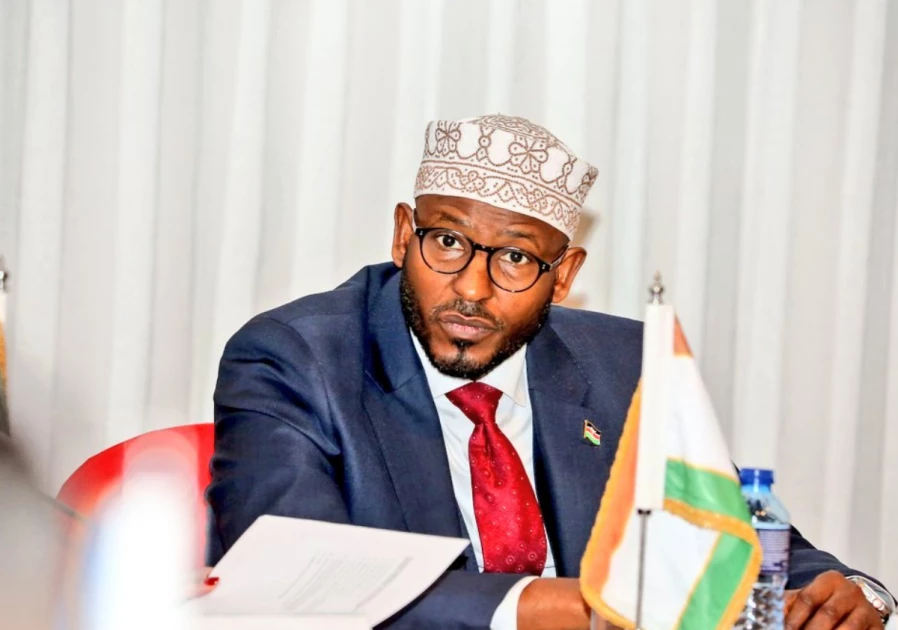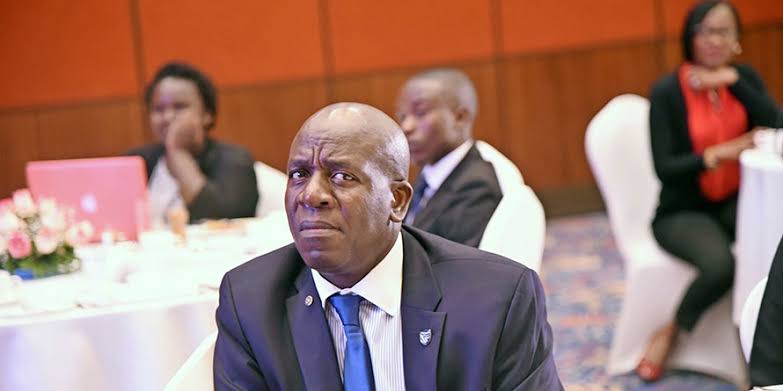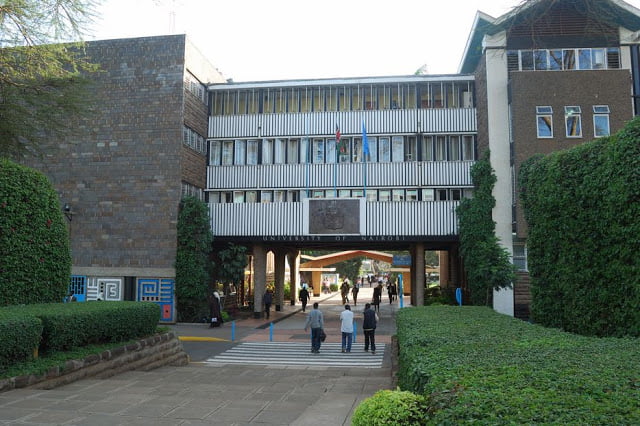Controller of Budget Margaret Nyakang’o is under siege. The Council of Governors (CoG), led by Wajir Governor Ahmed Abdullahi, is pushing for her removal, accusing her of frustrating devolution and blocking county operations.
In a heated press statement on June 16, Abdullahi claimed that Nyakang’o’s style of leadership is not only rigid but hostile to counties trying to access funds. The situation, he said, has reached crisis levels, with county bursaries and essential services hanging in the balance.
The governors say if Nyakang’o doesn’t change, she must go—and they’re ready to petition Parliament to force her out.

Margaret Nyakang’o Faces Rebellion from Governors over Delayed Funds
The Controller of Budget, Dr. Margaret Nyakang’o, has been labelled a major obstacle to the smooth functioning of county governments by the Council of Governors. Speaking on behalf of all 47 county bosses, CoG Chair Ahmed Abdullahi did not mince words. He accused Nyakang’o of turning what should be routine budget approvals into a bureaucratic nightmare.
“She has become difficult. She has become intransigent. She has become unreasonable,” said Abdullahi. “The Controller of Budget is taking county governments through hell just to access money.”
The tension comes from delays in the approval of budgeted funds. Governors complain that even after Parliament allocates money, counties cannot spend a shilling unless the Controller gives written approval. This legal authority, they argue, is being weaponized by Nyakang’o to punish or frustrate them.
Abdullahi gave an example from Wajir County, where Ksh130 million in bursaries for needy students is at risk of going unused. The deadline to disburse the funds is June 30, yet approvals are still pending. Without the money, thousands of students may miss exams or drop out before the next term in August.
Governors Accuse Nyakang’o of Holding Devolution Hostage
The Council of Governors says Nyakang’o is acting more like a gatekeeper than a facilitator. In their view, she has transformed the Controller’s office into a roadblock, holding counties hostage while pretending to enforce the law.
“What we are seeing is pure sabotage,” one governor told reporters off the record. “She delays everything and insists on manual processes that force staff to travel all the way to Nairobi just for signatures.”
Governor Abdullahi echoed the same frustration, noting that county staff from remote areas like Wajir are forced to queue at Nyakang’o’s office when approvals could be done digitally.
“It’s unacceptable. The biggest threat to devolution is the Controller of Budget,” he said. “If this continues, we must question whether the country is even serious about supporting county governments.”
The governors also argue that Nyakang’o’s refusal to approve key spending is putting lives and livelihoods at risk, especially in counties that rely heavily on bursaries, health funds, and development budgets.
What It Takes to Remove Margaret Nyakang’o from Office
The Council of Governors has announced that they will formally petition Parliament to remove Margaret Nyakang’o from office. But removing a Controller of Budget is no easy feat.
The process is anchored in Article 251 of the Constitution. Grounds for removal include violation of the Constitution or law, gross misconduct, incompetence, bankruptcy, or mental and physical incapacity.
A petition must be filed with the National Assembly, detailing the accusations. If the National Assembly finds the claims credible, it forwards the petition to the President. At that point, the President may suspend the Controller and appoint a tribunal to investigate.
The tribunal has powers to summon witnesses, review documents, and hear the Controller’s defense. After its investigation, the tribunal gives a binding recommendation to the President—either to remove or reinstate the official.
If the tribunal finds grounds for dismissal, the President must act accordingly within 30 days. So far, the governors haven’t disclosed the exact legal ground they intend to use, but based on their complaints, they are likely to accuse Nyakang’o of incompetence and abuse of office.
A Clash Between Oversight and Politics
While Margaret Nyakang’o insists that her job is to ensure counties spend money responsibly, governors argue she’s overstepping her role and undermining devolution.
Supporters of Nyakang’o say she is simply enforcing the law to prevent misuse of public funds. Indeed, her office has previously flagged counties for inflated budgets, misallocated funds, and lack of transparency.
But the mounting pressure from the governors paints a troubling picture. Kenya’s devolution system, one of the most ambitious in Africa, depends on a careful balance between autonomy and oversight. When that balance collapses, it’s the citizens who suffer—especially students, patients, and vulnerable groups waiting on county services.
Whether Margaret Nyakang’o will be forced out or survive this political storm remains to be seen. But one thing is clear—the battle lines have been drawn, and the war over control of public money is far from over.











































